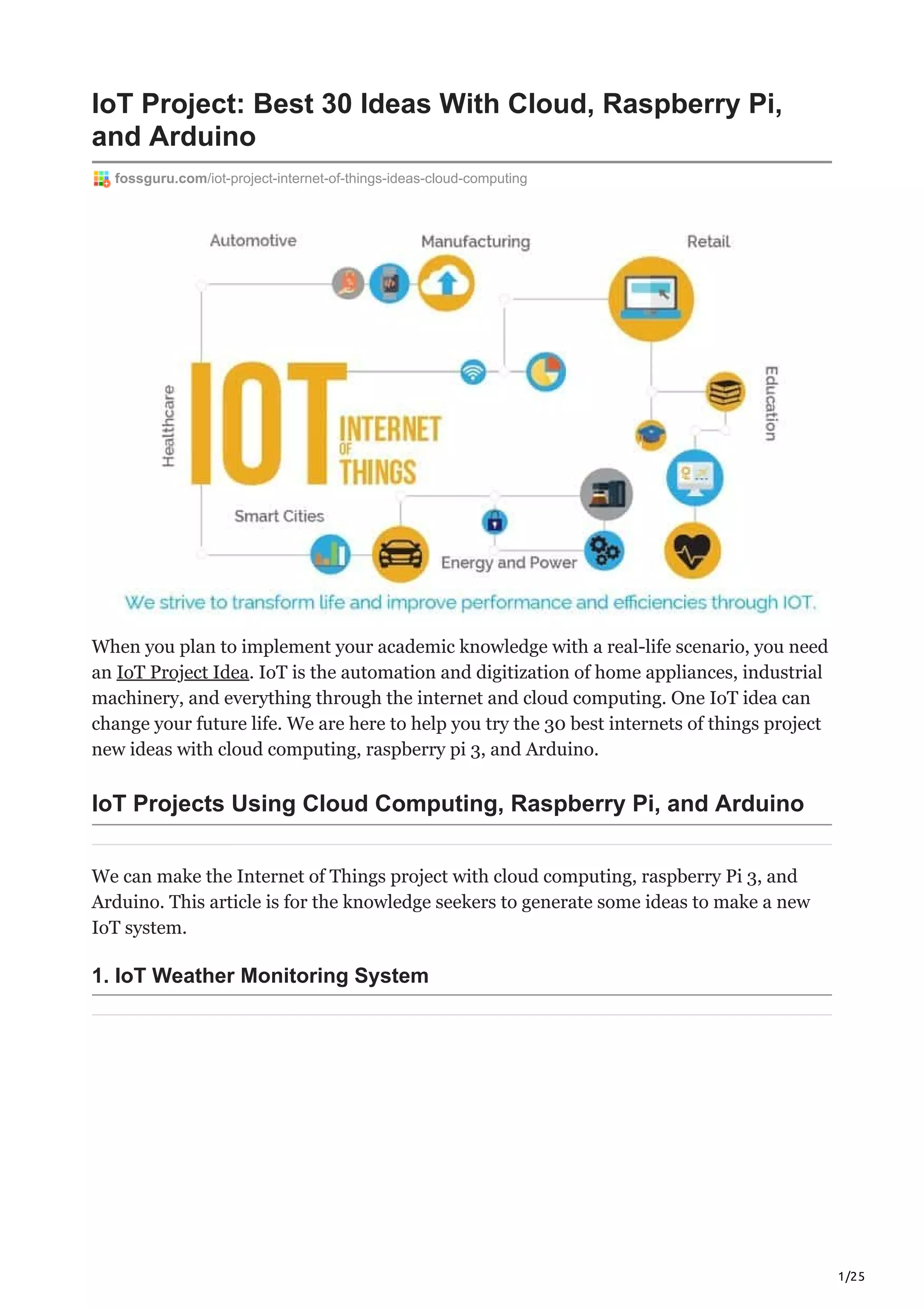Unlocking the potential of remote Raspberry Pi IoT projects has never been more accessible. With advancements in technology and an array of tools available, even beginners can embark on exciting ventures without breaking the bank. Whether you're managing a fleet of devices or simply exploring the world of IoT, there are numerous solutions designed to simplify the process while keeping costs low.
This beginner's guide aims to provide a comprehensive overview of the best practices and tools for managing multiple Raspberry Pi devices remotely. From free platforms to secure protocols, we'll delve into how you can efficiently control your IoT projects from anywhere in the world. Let's dive into some practical strategies that will empower your next project.
When it comes to managing a large number of Raspberry Pi devices, efficiency is key. One user on R/sysadmin explored the challenge of handling 100-200 units effectively. Tools like Dataplicity and Remote-IoT have proven useful for bulk management, offering streamlined solutions for those looking to scale their operations. These platforms not only enhance productivity but also ensure that each device remains under control with minimal effort.
Efficient Fleet Management Solutions
Balena stands out as a powerful tool for simplifying IoT device management. Its cloud platform, balenaCloud, allows developers to manage fleets of IoT Linux devices effortlessly. This service is particularly beneficial for projects involving Raspberry Pi-powered digital signage or website viewers, which require remote accessibility from any location. With the first ten devices being free, balenaCloud provides an excellent starting point for anyone venturing into IoT fleet management.
By leveraging balenaCloud, users can develop, deploy, and scale their IoT projects without worrying about complex configurations. The platform supports automatic updates and offers robust security features, ensuring that all connected devices remain protected against potential threats. Additionally, its intuitive interface makes it easy for both beginners and experienced developers to navigate through various functionalities.
Another advantage of using balenaCloud lies in its community-driven ecosystem. Developers can access pre-built images tailored specifically for different hardware configurations, saving time during setup processes. Furthermore, the availability of extensive documentation ensures that users always have guidance at hand when troubleshooting issues or learning new techniques related to IoT development.
Secure Access Beyond Local Networks
Accessing a Raspberry Pi from outside your local network requires careful consideration of security measures. While SSH (Secure Shell) serves as a fundamental protocol for establishing secure connections over unsecured networks, integrating third-party IoT remote services enhances convenience and reliability. These services often provide additional layers of protection beyond what standard SSH alone offers.
Third-party providers typically offer flexible options regarding port numbers, allowing users to customize settings according to specific needs. For instance, changing default ports reduces vulnerability to automated attacks targeting common entry points. Moreover, such services facilitate seamless integration with existing infrastructure by supporting multiple authentication methods including two-factor authentication.
It’s important to select reputable providers who prioritize data encryption throughout transmission processes. Doing so guarantees privacy while enabling effortless remote management capabilities across diverse environments. Always evaluate vendor offerings based on factors like ease-of-use, scalability potential, and overall cost-effectiveness before committing long-term resources.
Enhanced Control Through Internet Connectivity
VNC (Virtual Network Computing), once widely regarded as a go-to solution for graphical remote desktop sharing, faces increasing scrutiny due to licensing changes affecting its availability as a free option. As alternatives emerge within the realm of Raspberry Pi applications, users must carefully weigh trade-offs between functionality and affordability. Some may opt for other free remote access providers capable of fulfilling similar roles without compromising essential features.
Zoho Assist represents one such alternative providing robust unattended remote support tools ideal for troubleshooting scenarios involving Raspberry Pi-based IoT setups. Features like bulk deployment configuration and diagnostic utilities contribute significantly towards streamlining administrative tasks associated with maintaining expansive fleets of interconnected devices. Consent-based mechanisms further bolster trust levels among stakeholders involved in collaborative efforts.
Azure IoT Central presents another compelling choice for simplifying remote monitoring activities. By combining affordable pricing structures with comprehensive quick-start guides, this platform empowers individuals and organizations alike to implement sophisticated home automation systems utilizing components such as temperature sensors paired with compatible microcontrollers like the Raspberry Pi Zero. Such integrations foster innovation while promoting energy efficiency improvements within residential settings.

